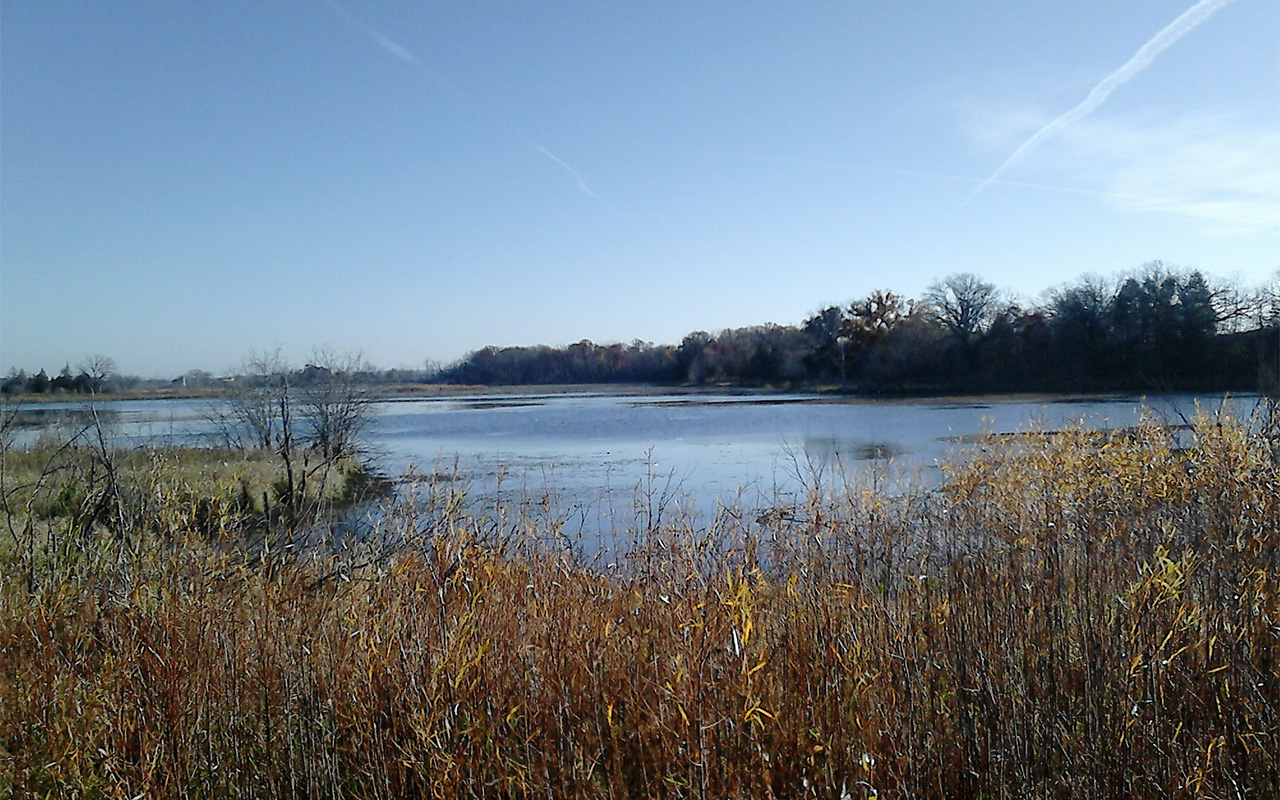

POTAWATOMI
In 1600 the Potawatomi lived in the northern third of lower Michigan. Threatened by the Ontario tribes trading with the French (Neutrals, Tionontati, Ottawa, and Huron) during the late 1630s, the Potawatomi began leaving their homeland in 1641 and moved to the west side of Lake Michigan in northern Wisconsin. This was completed during the 1650s after the Iroquois defeated the French allies and swept into lower Michigan. By 1665 all of the Potawatomi were living on Wisconsin's Door Peninsula just east of Green Bay. They remained there until 1687 when the French and Great Lakes Algonquin began driving the Iroquois back to New York. As the Iroquois retreated, the Potawatomi moved south along the west shore of Lake Michigan reaching the south end by 1695. At about the same time, one band settled near Jesuit mission on the St. Joseph River in southwest Michigan. Shortly after the French built Fort Ponchartrain at Detroit in 1701, groups of Potawatomi settled nearby. By 1716 most Potawatomi villages were located in a area between Milwaukee to Detroit. During the 1760s they expanded into northern Indiana and central Illinois.
Estimates of the original Potawatomi population range as high as 15,000, but 8,000 is probably closer to the truth. Although they had undergone 30 years of war, relocation, and epidemic, the French estimated there were about 4,000 in 1667. Since all Potawatomi bands had gathered into four villages near Green Bay at that time, this probably was fairly accurate. Later estimates vary between 1,200 to 3,400, but the Potawatomi had separated into many bands, and these estimates failed to list all of them. Accurate counts were not possible until the Potawatomi had been moved to Kansas. In 1854 the Indian Bureau listed 3,440 on the reservation, but some had left with the Kickapoo for northern Mexico. The report also mentioned 600 "strolling Potawatomi," who had avoided removal and were somewhere in Michigan, Indiana, and Wisconsin. It also failed to include the 4-600 Potawatomi in Canada. The 1910 census listed 2,440 Potawatomi in the United States, with another 180 in Canada - total of 2,620. The current population of all Potawatomi in Canada and the United States is almost 28,000.
The Potawatomi name is a translation of the Ojibwe "potawatomink" meaning "people of the place of fire." Similar renderings of this are: Fire Nation, Keepers of the Sacred Fire, and People of the Fireplace - all of which refer to the role of the Potawatomi as the keeper of the council fire in an earlier alliance with the Ojibwe and Ottawa. In their own language, the Potawatomi refer to themselves as the Nishnabek or "people" (similar to the Ojibwe name for themselves, Anishinabe (Anishinaubag, Neshnabek). A lengthy name like Potawatomi has had a variety of spellings: Pattawatima, Putawatimes, Pouteouatims, and Poutouatami. Also called: Adawadeny or Atowateany (Iroquois), Assistaeronon (Huron), Kunuhayanu (Caddo), Ouapou, Pekineni ( Fox), Pous, Poux, or Pu (French), Tcashtalalgi (Creek), Undatomatendi (Huron), Wahhonahah (Miami), Wahiucaxa (Omaha), Wahiuyaha (Kansa), and Woraxa (Iowa, Missouri, Otoe, and Winnebago)
Big Foot (Gros Pied, Maumksuck), Manitowoc, Maquanago, Mechingan, Milwaukee (Ojibwe, Ottawa), Mitchigami, Mukwonago, Oconomowoc, Rock County, St. Michael, Skunk Grove, Waubekeetschuk, and Waukesha.
The Potawatomi originally provided for themselves as hunter/gatherers because they were too far north for reliable agriculture. Like the closely-related Ojibwe and Ottawa, their diet came from wild game, fish, wild rice, red oak acorns, and maple syrup, but the Potawatomi were adaptive. After being forced by the Beaver Wars (1630-1700) to relocate to Wisconsin, they learned farming from the Sauk, Fox, Kickapoo, and Winnebago. When the French arrived at Green Bay, Potawatomi women were tending large fields of corn, beans, and squash. They even took their agriculture a step further and in time were known for their medicinal herb gardens. Agriculture was an extension of the women's role as gathers, but other than clearing the fields, the men remained hunters and warriors.
In a tradition shared by all three tribes, the Potawatomi came from the northeast with the Ottawa and Ojibwe to the eastern shore of Lake Huron. This is believed to have happened sometime around 1400 after the North American climate became colder. The Ottawa remained near the French River and on Manitoulin and the other islands in Lake Huron, but the Potawatomi and Ojibwe continued north along the shoreline until they reached Sault St. Marie. About 1500, the Potawatomi crossed over and settled in the northern third of lower Michigan. Although separated, the three related tribes remembered their earlier alliance and referred to each other as the "three brothers." As the keepers of the council fire of this old alliance, the Potawatomi were called "potawatomink" or "people of the place of fire."
more...
www.tolatsga.org/pota.html